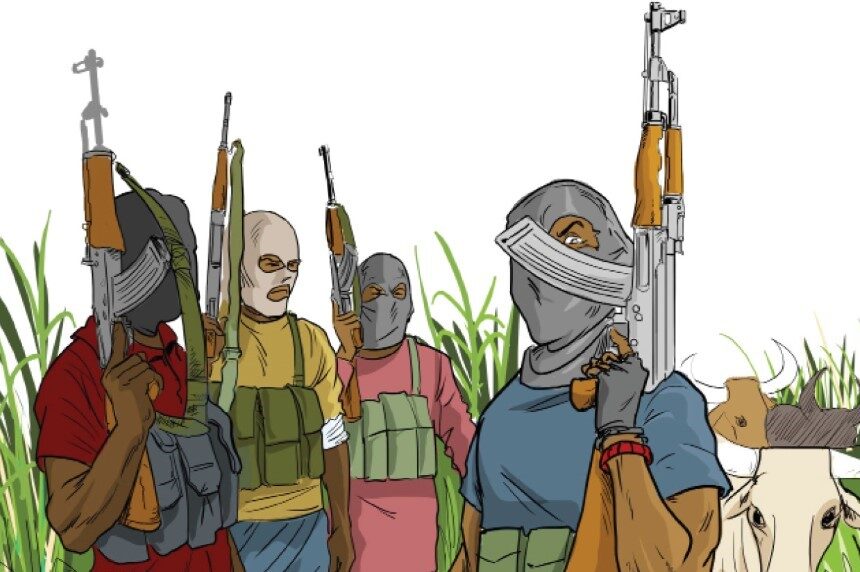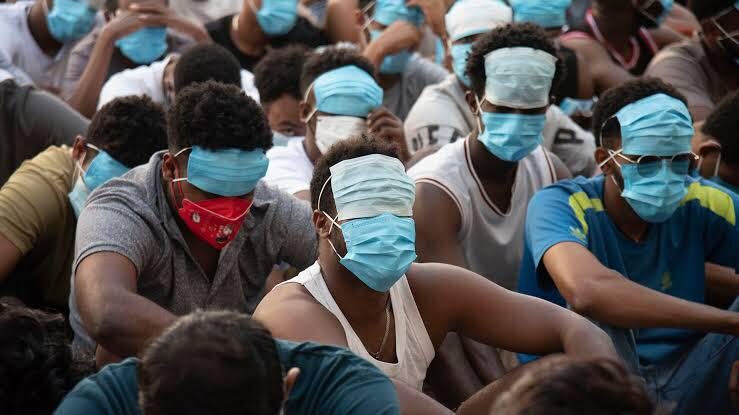Banditry, Insurgency, and the Everyday Quest for Peace in Nigeria
By: Vol. Ali Fahd
Ed: 226 | 23.09.2025
Today, Nigeria stands at a critical crossroads. Despite decades of counter-insurgency efforts by intra and inter security personnel, the threats to national security have continued to destabilise communities and threaten livelihoods.
According to a report by the National Human Rights Commission (NHRC), 2,266 lives were lost to insurgents and bandits during the first half of 2025, surpassing the total fatalities recorded in the entire 2024.
While abductions have slightly decreased, attacks have become more frequent and deadly, with large-scale incidents such as the Malam-Fatori bombing in January and the Kwallajiya attack in July reminding Nigerians of the fragility of peace. Against this backdrop, the everyday quest for peace is no longer just a matter for security forces; it has become a collective struggle involving state institutions, local communities, and civil society.
The Escalating Human Cost and Security Responses
The human toll of banditry and insurgency is staggering. Beyond the statistics, families are torn apart, children are displaced, and farmers are forced to abandon fertile lands.
In Borno and Sokoto States, recurring suicide bombings and raids on villages illustrate the brutal tactics of militant groups. For many Nigerians, daily life is overshadowed by fear of being attacked on highways, kidnapped from schools, or losing livelihoods on farmlands now controlled by armed groups.
Moreover, the helm of insecurity has created a culture of resilience, but also one of exhaustion, as ordinary citizens struggle to live with dignity in the midst of violence.
Notably, the Nigerian government has made notable strides in recent years. Precision airstrikes have eliminated top commanders, such as Boko Haram’s Ibrahim Bakoura, in the Lake Chad region.
Between 2023 and mid-2025, over 11,000 hostages were freed through military operations. In July 2025 alone, security forces rescued 76 captives, including women and children, in Katsina State. These successes prove that the government retains significant capacity. Yet, military gains remain fragile when not matched with long-term stabilisation efforts. Insurgents continue to adapt, bandits regroup in forests, and the cycle of violence persists.
Community and Civil Society Responses
Attention is increasingly shifting to community-driven solutions.
In Zamfara, local hunters and farmers have petitioned for formal recognition and logistical support to defend their communities. Traditional and religious leaders continue to call for sulhu (dialogue and reconciliation) with repentant fighters, emphasising that sustainable peace cannot be achieved by bullets alone.
In addition, civil society organisations, including youth and women’s groups, play vital roles in peace education, early warning, and trauma healing. These grassroots initiatives demonstrate that peacebuilding is not the monopoly of the state, but a collective responsibility.
Banditry and insurgency have also become developmental crises. Nigeria’s ambitious agricultural reforms are under threat, as farmers in Benue, Kaduna, and Katsina abandon fields due to attacks. Recent studies show that each 1% rise in insecurity leads to a 0.2–0.3% decline in agricultural productivity, worsening food insecurity in a country already grappling with inflation.
Education is also suffering, with hundreds of schools closed in conflict-prone areas. By disrupting both food and learning, insecurity perpetuates a cycle of poverty and vulnerability that fuels further violence.
The consensus among governors, security experts, and civil society is clear: Nigeria must adopt a multidimensional approach to peace. This includes combining military action with investments in education, infrastructure, vocational training, and youth empowerment.
Roads, schools, and clinics in rural areas are not luxuries; they are lifelines that prevent communities from becoming recruitment grounds for insurgents. Equally important is reconciliation: former fighters must be reintegrated into society with dignity, while victims receive justice and healing. Only by addressing both root causes and immediate threats can the nation move toward lasting stability.
Conclusion
The persistence of banditry and insurgency in 2025 reveals that peace in Nigeria is not an abstract goal but an everyday struggle woven into the lives of millions. While the state has demonstrated its capacity to neutralise threats, victory cannot be measured solely by the number of militants killed or hostages freed. True peace demands that Nigeria confront the structural conditions, poverty, marginalisation, and weak governance that sustain cycles of violence.
At the same time, the resilience of ordinary Nigerians, from local hunters to women’s groups, shows that peacebuilding is possible when communities and institutions work together. The challenge for Nigeria is to transform these scattered efforts into a coherent national vision for peace. Only then can the country break free from the shadows of violence and step into a future where peace is not just fought for but lived daily.
Image Credit: Daily Trust
References
Associated Press. (2025a, July). Nigerian military airstrikes free 76 hostages, including children. AP News. https://apnews.com/article/b57a4cb562c2d57f378d3828e6643f2e
Associated Press. (2025b, July). Nigeria says it has arrested 2 militant leaders on its most wanted list. AP News. https://apnews.com/article/59391894574805512f870fcc0b1c6635
Guardian Nigeria. (2025, July 11). NHRC report: Insurgents, bandits killed more in H1 2025. Guardian Nigeria. https://guardian.ng/news/nhrc-report-insurgents-bandits-killed-more-in-h1-2025/
Ijirshar, V. U., Udaah, I. I., Mile, B. N., Vershima, J. S., & Adaudu, A. (2025, June 2). Effect of insecurity on agricultural output in Benue State, Nigeria (arXiv preprint arXiv:2506.01525). arXiv. https://arxiv.org/abs/2506.01525



